|
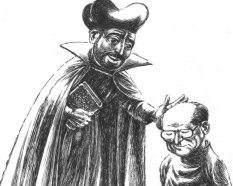 “To see religious who seeks nothing but God sad, or one who seeks everything except God happy, is a great miracle.” Hev IV 26 Cf. Bart V 18:4
“To see religious who seeks nothing but God sad, or one who seeks everything except God happy, is a great miracle.” Hev IV 26 Cf. Bart V 18:4
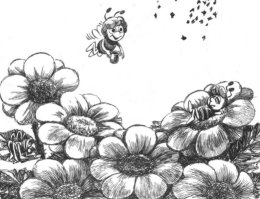 “All the honey of all the flowers in the world is not so sweet as the gall and vinegar of the Lord Jesus.” Hev III 8
“All the honey of all the flowers in the world is not so sweet as the gall and vinegar of the Lord Jesus.” Hev III 8
 “Non coerceri a maximo, contineri tamen a minimo, divinum est.” Ima
“Non coerceri a maximo, contineri tamen a minimo, divinum est.” Ima
 “God dwells in creatures: in the elements giving them existence, in the plants giving them life, in the animals conferring upon them sensation, in man bestowing understanding. So He dwells in me and gives me being, life, sensation, intelligence...” ES 235
“God dwells in creatures: in the elements giving them existence, in the plants giving them life, in the animals conferring upon them sensation, in man bestowing understanding. So He dwells in me and gives me being, life, sensation, intelligence...” ES 235
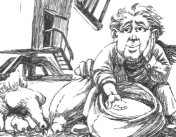 “God works and labors for me in all creatures upon the face of the earth, that is, He conducts Himself as one who labors.” ES 236
“God works and labors for me in all creatures upon the face of the earth, that is, He conducts Himself as one who labors.” ES 236
 “Love ought to manifest itself in deeds rather than in words.” ES 230
“Love ought to manifest itself in deeds rather than in words.” ES 230
 “For it is not much knowledge that fills and satisfies the soul, but the intimate understanding and relish of the truth.” ES 2
“For it is not much knowledge that fills and satisfies the soul, but the intimate understanding and relish of the truth.” ES 2
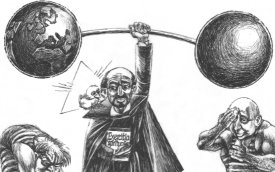 “By the term "Spiritual Exercises" is meant every method of examination of conscience, of meditation, of contemplation, of vocal and mental prayer, and (...) every way of preparing and disposing the soul to rid itself of all inordinate attachments, and, after their removal, of seeking and finding the will of God...” ES 1
“By the term "Spiritual Exercises" is meant every method of examination of conscience, of meditation, of contemplation, of vocal and mental prayer, and (...) every way of preparing and disposing the soul to rid itself of all inordinate attachments, and, after their removal, of seeking and finding the will of God...” ES 1
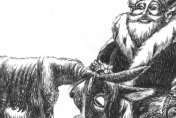 “It will be very profitable for the one who is to go through the Exercises to enter upon them with magnanimity and generosity toward Creator and Lord, and to offer Him his entire will and liberty, that His Divine Majesty may dispose of him and all he possesses according to His most holy will.” ES 5
“It will be very profitable for the one who is to go through the Exercises to enter upon them with magnanimity and generosity toward Creator and Lord, and to offer Him his entire will and liberty, that His Divine Majesty may dispose of him and all he possesses according to His most holy will.” ES 5
 “Man is to make use of the things created in as far as they help him in the attainment of his end, and he must rid himself of them in as far as they prove a hindrance to him.” ES 23
“Man is to make use of the things created in as far as they help him in the attainment of his end, and he must rid himself of them in as far as they prove a hindrance to him.” ES 23
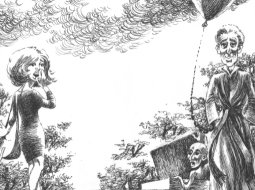 “Better the forsaking of one's will than the gift of raising the dead.” Hev II 25
“Better the forsaking of one's will than the gift of raising the dead.” Hev II 25
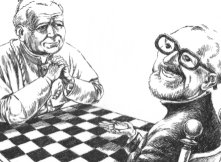 “If we wish to proceed securely in all things, we must hold fast to the following principle: What seems to me white, I will believe black if the hierarchical Church so defines...” ES 365
“If we wish to proceed securely in all things, we must hold fast to the following principle: What seems to me white, I will believe black if the hierarchical Church so defines...” ES 365
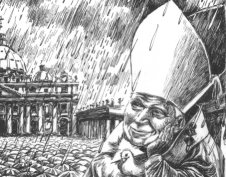 “...for I must be convinced that in Christ our Lord, the bridegroom, and in His spouse the Church, only one Spirit holds sway, which governs and rules for the salvation of souls.” ES 365
“...for I must be convinced that in Christ our Lord, the bridegroom, and in His spouse the Church, only one Spirit holds sway, which governs and rules for the salvation of souls.” ES 365
 “Ils défendront le Siege Apostolique et son autorité, et ameneront les gens a' lui obéir fidelement, sans utiliser d'imprudentes défenses qui leur feraient perdre leur crédit comme papistes. Au contraire, le zele dont ils poursuivent l'hérésie doit manifester l'amour qu'ils portent a' la personne des hérétiques et le désir compatissant qu'ils ont de leur salut.”
cf. "Aux peres envoyés en Allemagne", 24me septembre 1549, Saint Ignace, Lettres, trad. et comment. par G. Dumeige SJ, DDB, Paris 1959
“Ils défendront le Siege Apostolique et son autorité, et ameneront les gens a' lui obéir fidelement, sans utiliser d'imprudentes défenses qui leur feraient perdre leur crédit comme papistes. Au contraire, le zele dont ils poursuivent l'hérésie doit manifester l'amour qu'ils portent a' la personne des hérétiques et le désir compatissant qu'ils ont de leur salut.”
cf. "Aux peres envoyés en Allemagne", 24me septembre 1549, Saint Ignace, Lettres, trad. et comment. par G. Dumeige SJ, DDB, Paris 1959
 “He who is going to enter religion must know that he will not find continual calm and rest therein unless he cross the threshold with both feet, the will and the judgement, at once.” Hev 17 V
“He who is going to enter religion must know that he will not find continual calm and rest therein unless he cross the threshold with both feet, the will and the judgement, at once.” Hev 17 V
 “Those who obey with the will alone, while their reason is still unsubdued, walk lamely in the religious life.” Hev 15 VI
“Those who obey with the will alone, while their reason is still unsubdued, walk lamely in the religious life.” Hev 15 VI
 “Before those who will come to us take this burden upon their shoulders, they should ponder long and seriously, as the Lord has counseled, whether they posses among their resources enough spiritual capital to complete this tower.” FI
“Before those who will come to us take this burden upon their shoulders, they should ponder long and seriously, as the Lord has counseled, whether they posses among their resources enough spiritual capital to complete this tower.” FI
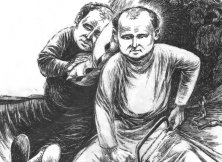 “The true religious is he who is wholly free not only from the world, but from himself as well.” Hev I 14
“The true religious is he who is wholly free not only from the world, but from himself as well.” Hev I 14
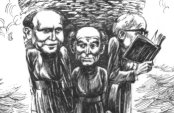 “The laborers in the Lord's vineyard should have one foot on the ground, and the other raised to proceed on their journey.” Hev II 14
“The laborers in the Lord's vineyard should have one foot on the ground, and the other raised to proceed on their journey.” Hev II 14
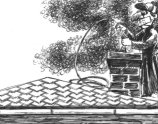 “There are three sure marks of the good state of religious house: the observance of the enclosure, of purity, and of silence.” Hev V 6
“There are three sure marks of the good state of religious house: the observance of the enclosure, of purity, and of silence.” Hev V 6
 “"I will" and "I will not" are strangers in this house.” Hev VIII 21
“"I will" and "I will not" are strangers in this house.” Hev VIII 21
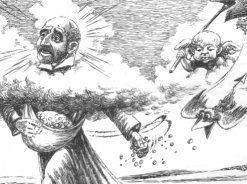 “Let your first rule of action be to trust in God as if success depended entirely on yourself and not on him: but use all your efforts as if God alone did everything, and yourself nothing.” Hev I 2
“Let your first rule of action be to trust in God as if success depended entirely on yourself and not on him: but use all your efforts as if God alone did everything, and yourself nothing.” Hev I 2
 “To foresee what we shall have to do, and to call up for judgement what we have done, are the most trustworthy rules for right action.” Hev IX 13
“To foresee what we shall have to do, and to call up for judgement what we have done, are the most trustworthy rules for right action.” Hev IX 13
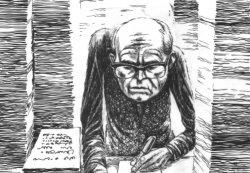 “Ten robi najwięcej, kto robi dobrze jedną rzecz. ” Bart V 18: 1
“Ten robi najwięcej, kto robi dobrze jedną rzecz. ” Bart V 18: 1
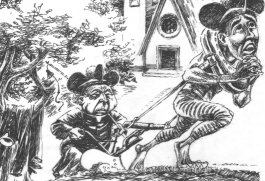 “It is certainly a more lofty virtue of the soul, and a greater grace, to be able to enjoy the Lord in different duties and places than in one only. We should, in the Divine Goodness, make a great effort to attain this.” L 466
“It is certainly a more lofty virtue of the soul, and a greater grace, to be able to enjoy the Lord in different duties and places than in one only. We should, in the Divine Goodness, make a great effort to attain this.” L 466
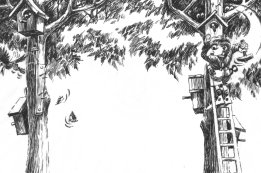 “Beware of condemning any man's action. Consider your neighbor's intention, which is often honest and innocent, even though his act seems bad in outward appearance.” Hev IV 17
“Beware of condemning any man's action. Consider your neighbor's intention, which is often honest and innocent, even though his act seems bad in outward appearance.” Hev IV 17
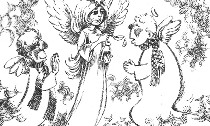 “The evils of the soul arise from excess, whether of lukewarmness or of fervour.” Hev IX 26
“The evils of the soul arise from excess, whether of lukewarmness or of fervour.” Hev IX 26
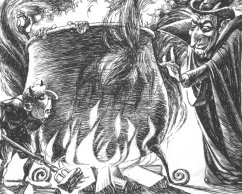 “"Nothing in excess", said the philosopher. And this principle should be our guide even in a matter pertaining to justice itself...” L 169
“"Nothing in excess", said the philosopher. And this principle should be our guide even in a matter pertaining to justice itself...” L 169
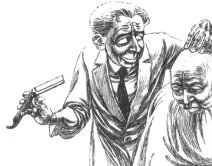 “If one fails to observe this moderation, he will find that good is turned into evil and virtue into vice.” L 169
“If one fails to observe this moderation, he will find that good is turned into evil and virtue into vice.” L 169
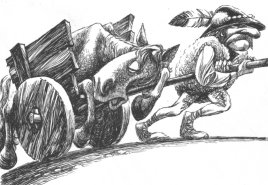 “Without moderation God is not really served in the long run, as the horse worn out in the first days does not as a rule finish the journey, and thus it happens that someone must be found to care for it.” ...
“Without moderation God is not really served in the long run, as the horse worn out in the first days does not as a rule finish the journey, and thus it happens that someone must be found to care for it.” ...
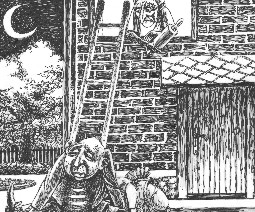 “Gains that are made with this excessive eagerness are not usually kept, as Scripture says, "Substance got in haste shall be diminished..."” Prov. 13:11 "And he that is hasty with his feet shall stumble", and if he stumbles, the further he falls, the greater the danger, for he will non stop until he has reached the bottom of the ladder.” Prov. 19:2 L 169
“Gains that are made with this excessive eagerness are not usually kept, as Scripture says, "Substance got in haste shall be diminished..."” Prov. 13:11 "And he that is hasty with his feet shall stumble", and if he stumbles, the further he falls, the greater the danger, for he will non stop until he has reached the bottom of the ladder.” Prov. 19:2 L 169
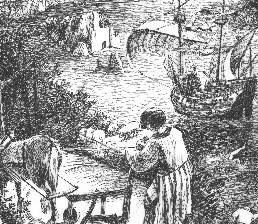 “If discretion seems to you to be something very rare and hard to come by, make up for it with obedience, whose counsel is certain... Thus if you wish to hold the middle way between the extreme of tepidity and indiscreet fervor, discuss your affairs with the superior and keep within the limits set down by obedience.” L 169
“If discretion seems to you to be something very rare and hard to come by, make up for it with obedience, whose counsel is certain... Thus if you wish to hold the middle way between the extreme of tepidity and indiscreet fervor, discuss your affairs with the superior and keep within the limits set down by obedience.” L 169
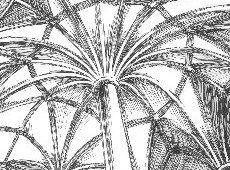 “In general way, the subjects will be what the superiors are.” Const 820
“In general way, the subjects will be what the superiors are.” Const 820
 “Prudence belongs not to the one who obeys a command, but to the one who gives it.” Hev II 11
“Prudence belongs not to the one who obeys a command, but to the one who gives it.” Hev II 11
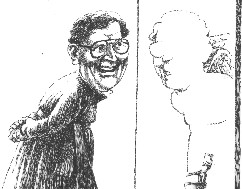 “Every one must keep in mind that in all that concerns the spiritual life progress will be in proportion to his surrender of self-love and of his own will and interests.” ES 189
“Every one must keep in mind that in all that concerns the spiritual life progress will be in proportion to his surrender of self-love and of his own will and interests.” ES 189
 “It is a mistake to measure a man's progress by his look, his gestures, his good-nature, or his love of solitude, when it ought to be estimated from the violence he does himself.” Hev VI 28
“It is a mistake to measure a man's progress by his look, his gestures, his good-nature, or his love of solitude, when it ought to be estimated from the violence he does himself.” Hev VI 28
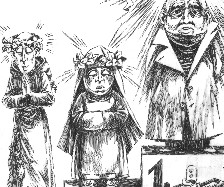 “Conquer yourself; for if you do this you will gain a brighter crown in heaven than others who are meeker by nature.” Hev IX 8 “Conquer yourself; for if you do this you will gain a brighter crown in heaven than others who are meeker by nature.” Hev IX 8
 “Try to maintain a holy and discreet ardor in work and in the pursuit of learning as well as of virtue. With one as with the other, one energetic act is worth a thousand that are listless...” L 169 “Try to maintain a holy and discreet ardor in work and in the pursuit of learning as well as of virtue. With one as with the other, one energetic act is worth a thousand that are listless...” L 169
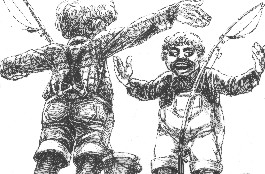 “Pure knowledge of the things that are naturally good would never suffice” L 169
“Pure knowledge of the things that are naturally good would never suffice” L 169
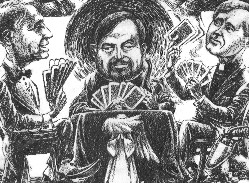 “Rekreacja jest nie tylko po to, żeby po posiłku praca nie szkodziła zdrowiu, ale po to, żeby bracia przestawali z sobą, rozmawiali, poznawali się wzajemnie i miłowali. To właśnie zapala i podtrzymuje miłość wzajemną.” FN III 630, 10
“Rekreacja jest nie tylko po to, żeby po posiłku praca nie szkodziła zdrowiu, ale po to, żeby bracia przestawali z sobą, rozmawiali, poznawali się wzajemnie i miłowali. To właśnie zapala i podtrzymuje miłość wzajemną.” FN III 630, 10
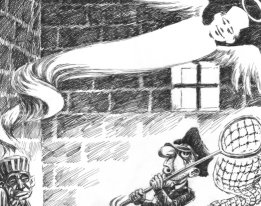 “To subdue the spirit is harder than to afflict the flesh.” Hev XII 11
“To subdue the spirit is harder than to afflict the flesh.” Hev XII 11
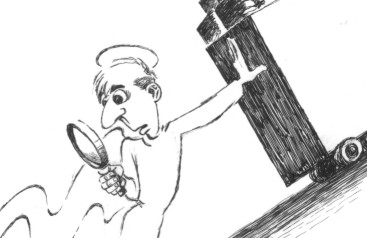 “We ought always to hold in suspicion the accusations our body makes against us, for it is accustomed to plead a pretended lack of strength to disguise a yearning to escape hardship.” Hev X 17
“We ought always to hold in suspicion the accusations our body makes against us, for it is accustomed to plead a pretended lack of strength to disguise a yearning to escape hardship.” Hev X 17
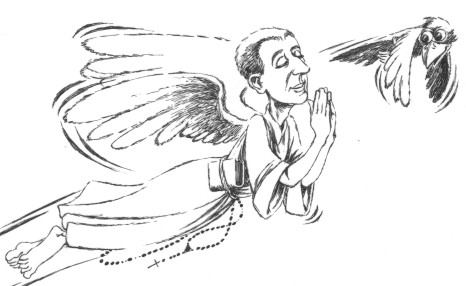 “What a lazy man cannot accomplish in many years an energetic man usually achives in a short time.” L 169” or: He who is zealous soars with wondrous speed in a few moments to a degree of virtue than the slothful cannot reach after many years.” Hev I 18
“What a lazy man cannot accomplish in many years an energetic man usually achives in a short time.” L 169” or: He who is zealous soars with wondrous speed in a few moments to a degree of virtue than the slothful cannot reach after many years.” Hev I 18
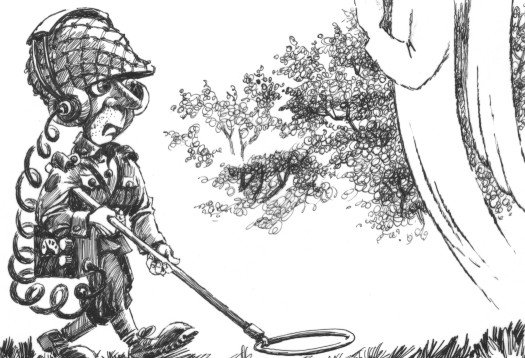 “If you find you have fallen, do not despair; even falls are in to well-being.” Hev IX 14
“If you find you have fallen, do not despair; even falls are in to well-being.” Hev IX 14
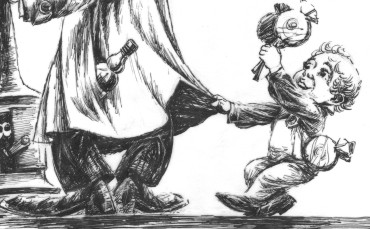 “Check impulse with impulse, habit with habit, as one nail is blunted with another.” Hev VII 8
“Check impulse with impulse, habit with habit, as one nail is blunted with another.” Hev VII 8
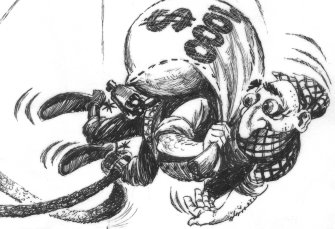 “To have prevented one single sin is reward enough for the labours and efforts of a whole lifetime.” Hev II 22
“To have prevented one single sin is reward enough for the labours and efforts of a whole lifetime.” Hev II 22
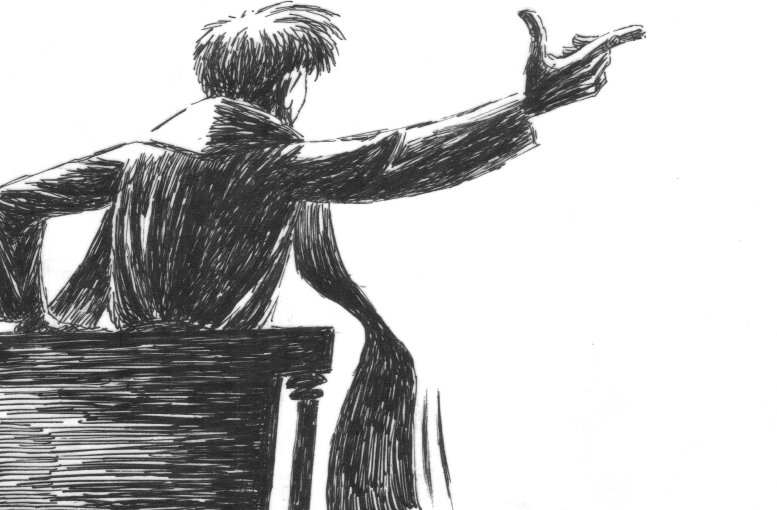 “Change of climate does not involve change of life. The imperfect man will be much the same wherever he is, until he has forsaken himself.” Hev I 4
“Change of climate does not involve change of life. The imperfect man will be much the same wherever he is, until he has forsaken himself.” Hev I 4
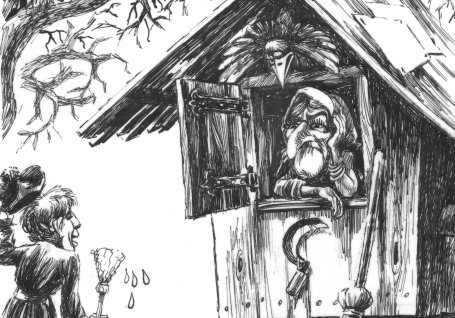 “You cannot speak of the things of God to any man, even the worst, without his gaining much profit thereby.” Hev VI 19
“You cannot speak of the things of God to any man, even the worst, without his gaining much profit thereby.” Hev VI 19
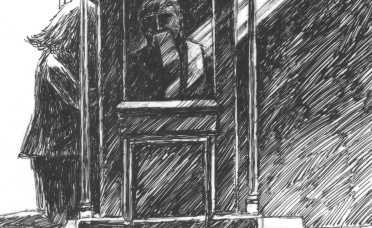 “God wills that the immediate cause which He uses as instrument, such as the preacher or confessor, be humble, charitable, patient. With the result that, when you benefit yourselves with a growth in virtue, you are also of great service to the neighbor.” L 169
“God wills that the immediate cause which He uses as instrument, such as the preacher or confessor, be humble, charitable, patient. With the result that, when you benefit yourselves with a growth in virtue, you are also of great service to the neighbor.” L 169
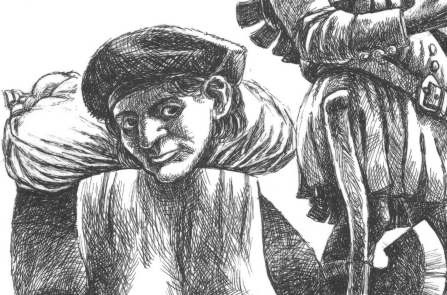 “It is necessary to suppose that every good Christian is more ready to put a good interpretation on another's statement than to condemn it as false.” ES 22
“It is necessary to suppose that every good Christian is more ready to put a good interpretation on another's statement than to condemn it as false.” ES 22
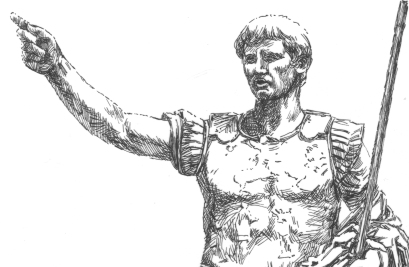 “this one is different here than in the Polish book: Be slow to speak, and only after having first listened quietly, so that you may understand the meaning, leanings, and wishes of those who do speak. Thus you will better know when to speak and when to be silent.” Trent
“this one is different here than in the Polish book: Be slow to speak, and only after having first listened quietly, so that you may understand the meaning, leanings, and wishes of those who do speak. Thus you will better know when to speak and when to be silent.” Trent
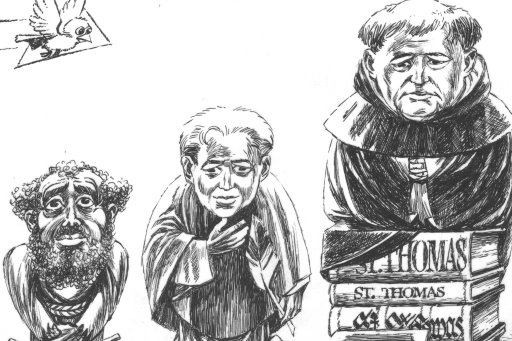 “We should prise both positive theology and that of the Scholastics. It is characteristic of the positive doctors, such as St. Augustine, St. Jerome, St. Gregory, and others, to rouse the affections so that we are moved to love and serve God our Lord in all things. On the other hand, it is more characteristic of the scholastic doctor, such as St. Thomas, St. Bonaventure, the Master of Sentences, and others, to define and state clearly, according to the needs of our times, the doctrines that are necessary for eternal salvation, and that more efficaciously help to refute all errors and expose all falacies.” ES 363
“We should prise both positive theology and that of the Scholastics. It is characteristic of the positive doctors, such as St. Augustine, St. Jerome, St. Gregory, and others, to rouse the affections so that we are moved to love and serve God our Lord in all things. On the other hand, it is more characteristic of the scholastic doctor, such as St. Thomas, St. Bonaventure, the Master of Sentences, and others, to define and state clearly, according to the needs of our times, the doctrines that are necessary for eternal salvation, and that more efficaciously help to refute all errors and expose all falacies.” ES 363
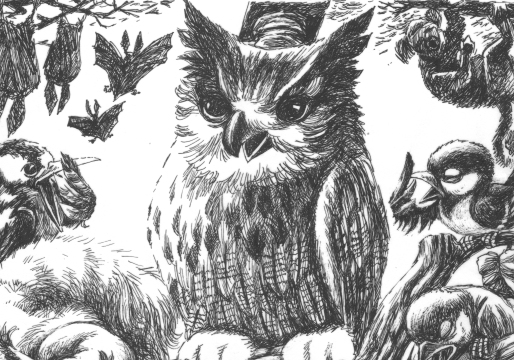 “Nasi niech wykładają solidną naukę bez zbytnich subtel-ności scholastycznych, trudnych do uchwycenia. Wykłady powinny być wprawdzie głębokie, ale jasne, obszerne, ale nie za długie i w pięknej szacie słownej...” Ep XII 239-247 cf. "Aux peres envoyés en Allemagne", 24me septembre 1549, Saint Ignace, Lettres, trad. et comment. par G. Dumeige SJ, DDB, Paris 1959
“Nasi niech wykładają solidną naukę bez zbytnich subtel-ności scholastycznych, trudnych do uchwycenia. Wykłady powinny być wprawdzie głębokie, ale jasne, obszerne, ale nie za długie i w pięknej szacie słownej...” Ep XII 239-247 cf. "Aux peres envoyés en Allemagne", 24me septembre 1549, Saint Ignace, Lettres, trad. et comment. par G. Dumeige SJ, DDB, Paris 1959
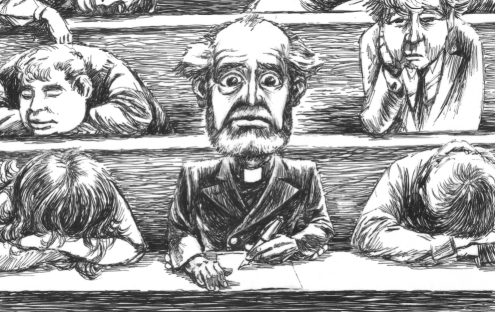 “In the matter of learning the difference between the earnest and the careless student stands clearly.” L 169
“In the matter of learning the difference between the earnest and the careless student stands clearly.” L 169
 “In the Society there should be nor be seen partiality to one side or another among Christian princes or rulers, but in its stead a universal love which embraces in our Lord all parties, even though they are adversaries to one another.” Const 823
“In the Society there should be nor be seen partiality to one side or another among Christian princes or rulers, but in its stead a universal love which embraces in our Lord all parties, even though they are adversaries to one another.” Const 823
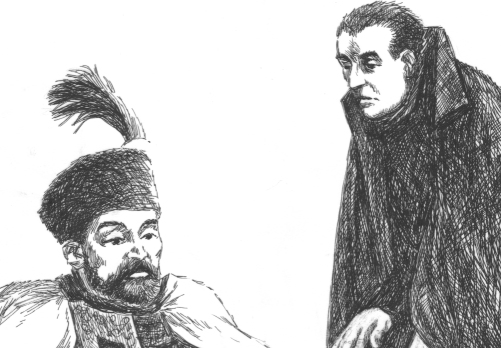 “Jeśli nie można wszystkim zadośćuczynić, należy raczej wybrać tych, po których możemy się spodziewać większego pożytku w Panu.” Ep XII 239-247
cf. "Aux p res envoyés en Allemagne", 24me septembre 1549
“Jeśli nie można wszystkim zadośćuczynić, należy raczej wybrać tych, po których możemy się spodziewać większego pożytku w Panu.” Ep XII 239-247
cf. "Aux p res envoyés en Allemagne", 24me septembre 1549
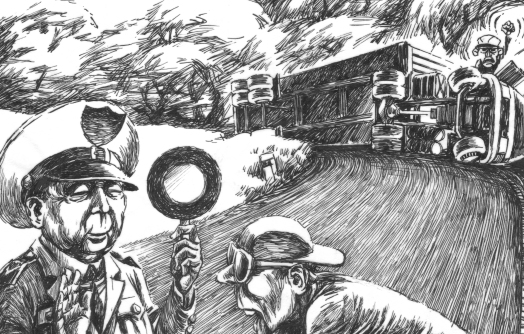 “It is a great help to progress to possess a friend who is privileged to point to you your failings.” Hev VI 30
“It is a great help to progress to possess a friend who is privileged to point to you your failings.” Hev VI 30
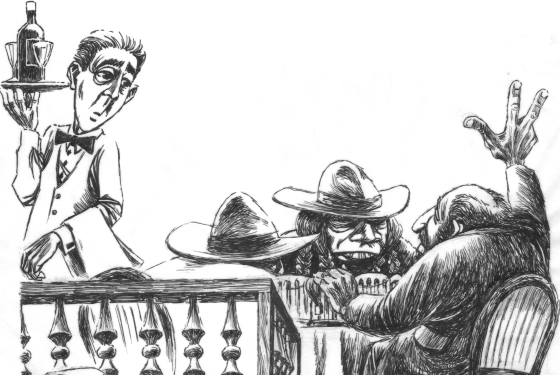 “When one is indefinite, one does not understand, and helps less.” L 8
“When one is indefinite, one does not understand, and helps less.” L 8
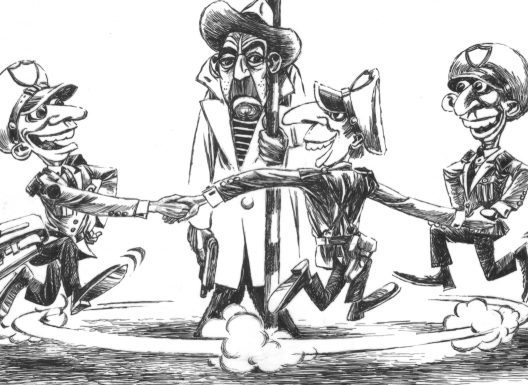 “The evil man is ready to suspect others, like a man attacked by giddiness who thinks that all things are whirling round him.” Hev X 14
“The evil man is ready to suspect others, like a man attacked by giddiness who thinks that all things are whirling round him.” Hev X 14
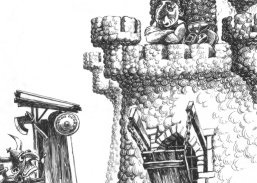 “When the evil wants to attack anyone, he first of all looks to see on what side his defences are weakest or in worst order; then he moves up his artillery to make a breach at that spot.” Hev V 26
“When the evil wants to attack anyone, he first of all looks to see on what side his defences are weakest or in worst order; then he moves up his artillery to make a breach at that spot.” Hev V 26
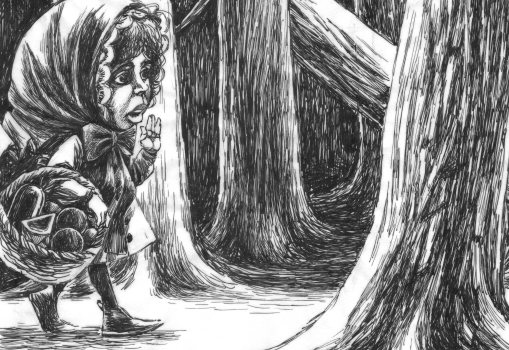 “In the first place the enemy as rule follows this course. He places obstacles and impediments in the way of those who love and begin to serve God our Lord, and this is the weapon he uses in his efforts to wound them. He asks, for instance: "How can you continue a life of such great penance, deprived of all satisfaction form friends, relatives, possessions...?"” L 7
“In the first place the enemy as rule follows this course. He places obstacles and impediments in the way of those who love and begin to serve God our Lord, and this is the weapon he uses in his efforts to wound them. He asks, for instance: "How can you continue a life of such great penance, deprived of all satisfaction form friends, relatives, possessions...?"” L 7
 “The enemy will then try his second weapon, which is pride and vainglory. He will endavour to make the individual see that there is a great deal of goodness and holiness in him, and puts him in a position high above his merits.” L 7
“The enemy will then try his second weapon, which is pride and vainglory. He will endavour to make the individual see that there is a great deal of goodness and holiness in him, and puts him in a position high above his merits.” L 7
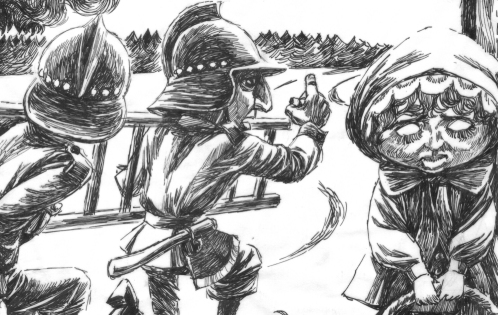 “When he sees that the servant of the Lord is so good and humble and, obedient to all the Lord's commands, regards his own uselessness and weakness without any thought of self-glorification, he is ready whit the suggestion that, should he happen to speak of the graces our Lord has bestowed upon him in actual deeds or merely in resolve or desire, he sins by another kind of vainglory in speaking favourably of himself. The enemy, having installed a fear in us that has some appearance of humility a false humility aims to prevent us from speaking of good, holy, and profitable things.” L 7
“When he sees that the servant of the Lord is so good and humble and, obedient to all the Lord's commands, regards his own uselessness and weakness without any thought of self-glorification, he is ready whit the suggestion that, should he happen to speak of the graces our Lord has bestowed upon him in actual deeds or merely in resolve or desire, he sins by another kind of vainglory in speaking favourably of himself. The enemy, having installed a fear in us that has some appearance of humility a false humility aims to prevent us from speaking of good, holy, and profitable things.” L 7
 “Much more danger lurks in making light of little sins that of great ones.” Hev 23 I
“Much more danger lurks in making light of little sins that of great ones.” Hev 23 I
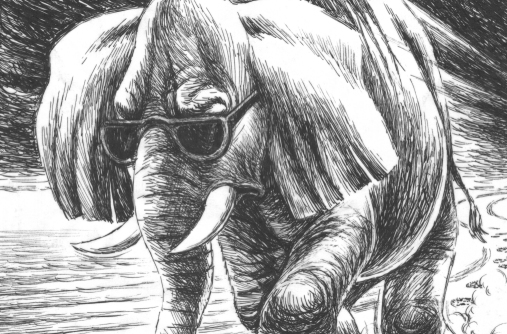 “If the enemy finds one whose conscience is easygoing and who falls into sins without a thought of their gravity, he does all he can to make venial sins appear no sins at all, and mortal venial, and a very serious mortal sin a mere trifle.” L 7
“If the enemy finds one whose conscience is easygoing and who falls into sins without a thought of their gravity, he does all he can to make venial sins appear no sins at all, and mortal venial, and a very serious mortal sin a mere trifle.” L 7
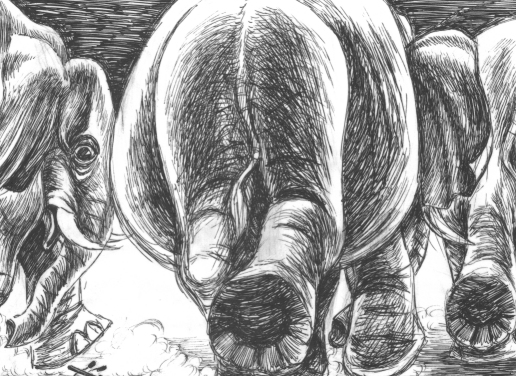 “If on the other hand the enemy comes upon one whose conscience is delicate (a delicate conscience being in itself nothing faulty, however) and sees that such a person avoids not only all mortal and all venial sin (as much as the latter is possible, for we cannot avoid them all) but even tries to keep from himself the very appearance of slight sin, imperfection, and defect, he tries to darken and confuse that good conscience by suggesting sin where there is none, changing perfection into defect...” L 7
“If on the other hand the enemy comes upon one whose conscience is delicate (a delicate conscience being in itself nothing faulty, however) and sees that such a person avoids not only all mortal and all venial sin (as much as the latter is possible, for we cannot avoid them all) but even tries to keep from himself the very appearance of slight sin, imperfection, and defect, he tries to darken and confuse that good conscience by suggesting sin where there is none, changing perfection into defect...” L 7
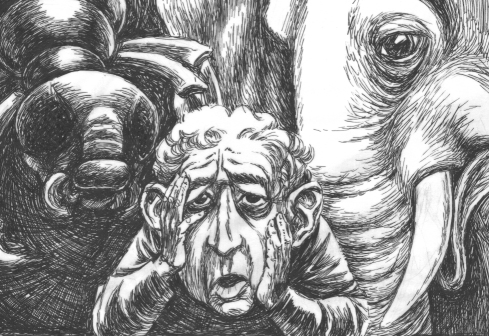 “Hence we must examine the matter closely; and if the enemy uplifts us, we must abase ourselves by recounting our sins and miseries. If he keeps us down and depresses us, we must raise ourselves up in true faith and hope in our Lord by recalling the blessing we have received and how much love and affection He is waiting to save us. The enemy does not care whether he speaks the truth or whether he lies. His sole purpose is to overcome us.” L 7
“Hence we must examine the matter closely; and if the enemy uplifts us, we must abase ourselves by recounting our sins and miseries. If he keeps us down and depresses us, we must raise ourselves up in true faith and hope in our Lord by recalling the blessing we have received and how much love and affection He is waiting to save us. The enemy does not care whether he speaks the truth or whether he lies. His sole purpose is to overcome us.” L 7
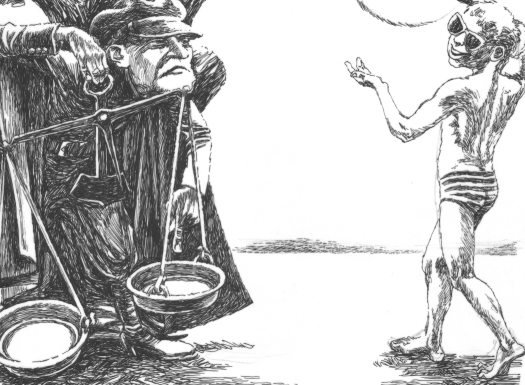 “If the enemy puts justice before my eyes, I will think of mercy. If he suggests mercy, I will think of justice.” L 7
“If the enemy puts justice before my eyes, I will think of mercy. If he suggests mercy, I will think of justice.” L 7
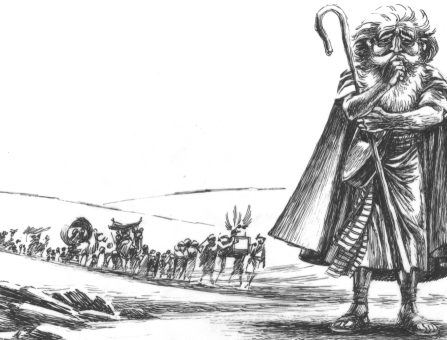 “When the enemy tries to magnify or diminish the communication received, we must proced for the purpose of helping others, like a man who is crossing a ford. If I find a good footing that is, some way or hope of profiting the neighbor I will pass right on. But if the ford is muddied or disturbed and there is danger that scandal my be taken from what I say, I will rein in and seek an occasion more favorable to what I have to say.” L 7
“When the enemy tries to magnify or diminish the communication received, we must proced for the purpose of helping others, like a man who is crossing a ford. If I find a good footing that is, some way or hope of profiting the neighbor I will pass right on. But if the ford is muddied or disturbed and there is danger that scandal my be taken from what I say, I will rein in and seek an occasion more favorable to what I have to say.” L 7
 “Gdy nieprzyjaciel przekona nas, że nie należy wspominać innym o rzeczach dobrych i świętych, wtedy dąży do wzbudzenia w nas jeszcze innej obawy...” L 7
“Gdy nieprzyjaciel przekona nas, że nie należy wspominać innym o rzeczach dobrych i świętych, wtedy dąży do wzbudzenia w nas jeszcze innej obawy...” L 7
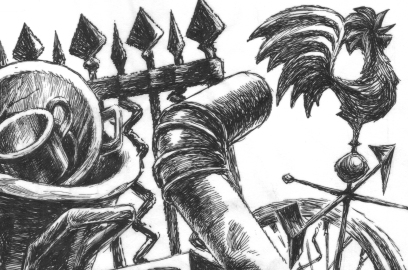 “...podsuwa nam myśli, czy przypadkiem nie znajdujemy się daleko od naszego Pana, wyłączeni i oddzieleni od Niego. ” L 7
“...podsuwa nam myśli, czy przypadkiem nie znajdujemy się daleko od naszego Pana, wyłączeni i oddzieleni od Niego. ” L 7
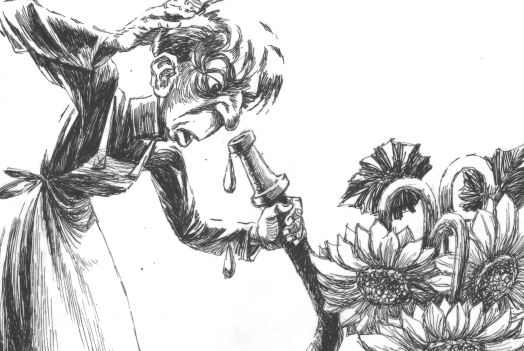 “As to that blindness or dryness of soul, it may easily come from a lack of confidence, or pusillanimity, and consequently can be cured by its contrary...” L 4020
“As to that blindness or dryness of soul, it may easily come from a lack of confidence, or pusillanimity, and consequently can be cured by its contrary...” L 4020
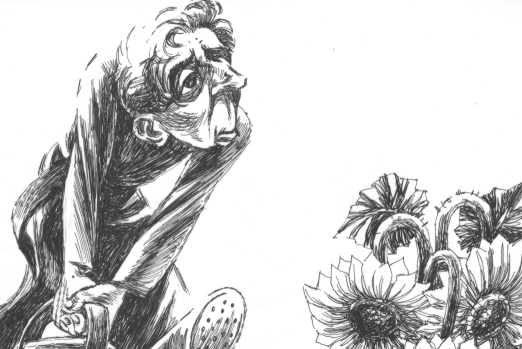 “God wishes to find solid virtues in us, such as patience, humility, obedience, abnegation of our own will that is, the good will to serve Him and our neighbor for Him.” L 4020
“God wishes to find solid virtues in us, such as patience, humility, obedience, abnegation of our own will that is, the good will to serve Him and our neighbor for Him.” L 4020
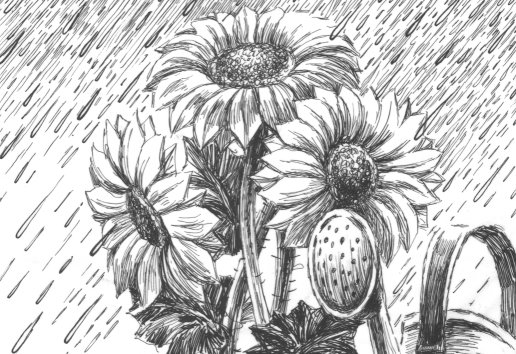 “His providence allows us other devotions only so far as He sees that they are expedient for us. But as they are not substantial, they do not make a man perfect when they abound, nor imperfect when they are absent.” L 4020
“His providence allows us other devotions only so far as He sees that they are expedient for us. But as they are not substantial, they do not make a man perfect when they abound, nor imperfect when they are absent.” L 4020
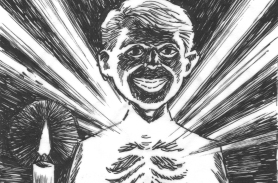 “There are two lessons which our Lord usually gives, or permits. The one of them He gives, the other He permits: The first is an interior consolation which casts out all uneasiness and draws one to a complete love of our Lord.” L 7
“There are two lessons which our Lord usually gives, or permits. The one of them He gives, the other He permits: The first is an interior consolation which casts out all uneasiness and draws one to a complete love of our Lord.” L 7
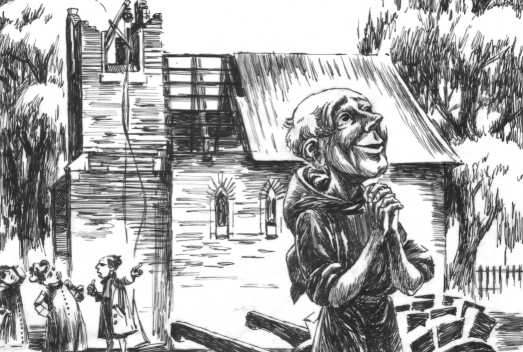 “Nie ma takiej pokuty, ani tak wielkiego ciężaru, ani innych tak uciążliwych prac, które nie wydawałyby się lekkie i słodkie temu, kto postępuje z tą gorliwością, zapałem i wewnętrzną pociechą.” L 7
“Nie ma takiej pokuty, ani tak wielkiego ciężaru, ani innych tak uciążliwych prac, które nie wydawałyby się lekkie i słodkie temu, kto postępuje z tą gorliwością, zapałem i wewnętrzną pociechą.” L 7
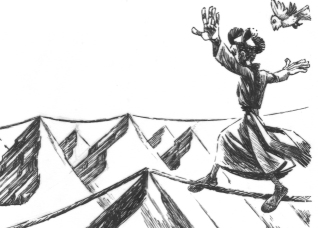 “Wewnętrzna pociecha pokazuje i otwiera przed nami drogę, jaką powinniśmy postępować, oraz wskazuje to, czego winniśmy unikać...” L 7
“Wewnętrzna pociecha pokazuje i otwiera przed nami drogę, jaką powinniśmy postępować, oraz wskazuje to, czego winniśmy unikać...” L 7
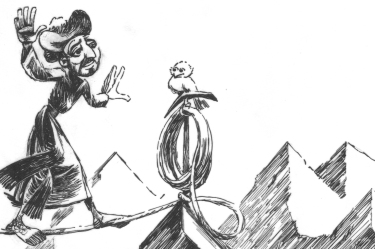 “But when this consolation is absent the other lesson comes to light. Our ancient enemy sets up all possible obstacles to turn us asides from the way on which we have entered.” L 7
“But when this consolation is absent the other lesson comes to light. Our ancient enemy sets up all possible obstacles to turn us asides from the way on which we have entered.” L 7
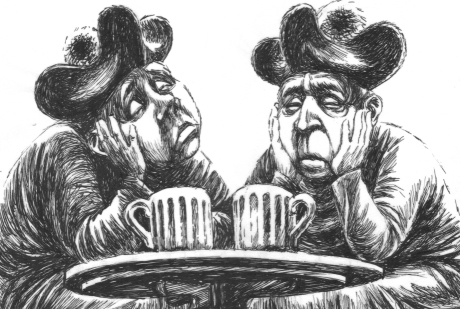 “We find ourselves sad without knowing why. We cannot pray with devotion, nor contemplate, nor speak or hear of the things of God with any interior taste or relish. Not only this, but if our enemy sees that we are weak and much humbled by these harmful thoughts, he goes on to suggest that we are quite separated from the Lord and that all that we have done and all that we desire to do is entirely worthless.” L 7
“We find ourselves sad without knowing why. We cannot pray with devotion, nor contemplate, nor speak or hear of the things of God with any interior taste or relish. Not only this, but if our enemy sees that we are weak and much humbled by these harmful thoughts, he goes on to suggest that we are quite separated from the Lord and that all that we have done and all that we desire to do is entirely worthless.” L 7
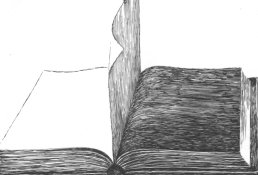 “Strapienie jest przeciwieństwem pocieszenia tak, jak wojna jest przeciwieństwem pokoju, smutek przeciwień-stwem radości duchowej, nadzieja pokładana w rzeczach niskich nadziei pokładanej w rzeczach wzniosłych, podob-nie jak oschłość jest przeciwieństwem łez...” Dir
“Strapienie jest przeciwieństwem pocieszenia tak, jak wojna jest przeciwieństwem pokoju, smutek przeciwień-stwem radości duchowej, nadzieja pokładana w rzeczach niskich nadziei pokładanej w rzeczach wzniosłych, podob-nie jak oschłość jest przeciwieństwem łez...” Dir
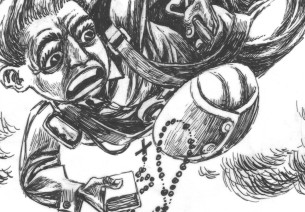 “When one is in desolation, he should be mindful that God has left him to his natural powers to resist the different agitations and temptations of the enemy as a trial. He can resist with the help of God, which always remains, though he may not clearly perceive it. For though God has taken form him the abundance of fervor and overflowing love and the intensity of His favors, nevertheless, he has sufficient grace for eternal salvation.” ES 320
“When one is in desolation, he should be mindful that God has left him to his natural powers to resist the different agitations and temptations of the enemy as a trial. He can resist with the help of God, which always remains, though he may not clearly perceive it. For though God has taken form him the abundance of fervor and overflowing love and the intensity of His favors, nevertheless, he has sufficient grace for eternal salvation.” ES 320
 “Experience shows that the most frequent contradictions are followed by the greatest fruit.” Hev XI 30
“Experience shows that the most frequent contradictions are followed by the greatest fruit.” Hev XI 30
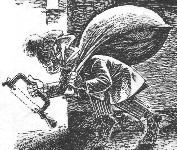 “When everything goes as you want it to, put no trust in the continuance of your good fortune, but fear all the more.” Hev I 29
“When everything goes as you want it to, put no trust in the continuance of your good fortune, but fear all the more.” Hev I 29
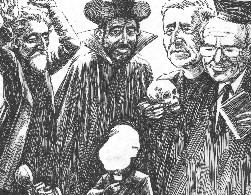 “We must be on our guard against making comparison between those who are still living and the saints who have gone before us...” ES 364
“We must be on our guard against making comparison between those who are still living and the saints who have gone before us...” ES 364
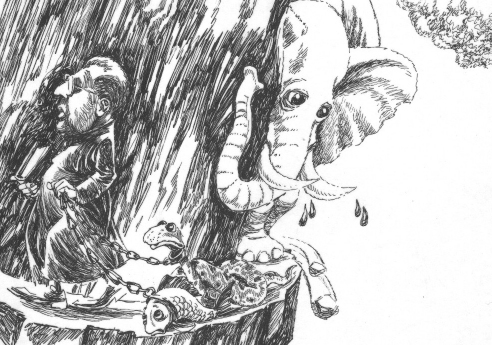 “To seek to bring all men to salvation by one road is very dangerous. He who does so fails to understand how many and various are the gifts of the Holy Ghost.” Hev VII 4
“To seek to bring all men to salvation by one road is very dangerous. He who does so fails to understand how many and various are the gifts of the Holy Ghost.” Hev VII 4
 All the graphics published on these pages come from my book
All the graphics published on these pages come from my book
"Duchowość ignacjańska w zarysie, czyli 87 słów św. Ignacego Loyoli w tyluż ilustracjach piórkiem"
Łódź, 1994, ISBN 83-85022-29-5
© 1994 Krzysztof Mądel, S.J.
Sources: Gabriel Hevenesi: Scintillae ignatianae
• Ignatius Loyola: The Spiritual Exercises
• Alan G. McDougall: Thoughts of St Ignatius Loyola for Every Day
See also: W. Norris Clarke: Jesuits • J. H. Pollen: The Society of Jesus •
R. VandeVelde: Saints and Blessed of the Society of Jesus • J. Castellon Covarrubias: Jesuit Martyrology of the 20th Century • J. Padberg: A Woman Jesuit
A b b r e v i a t i o n s
| Bart |
Daniello Bartoli SJ, Della vita e dell'Instituto di S. Ignatii -- fondatore della Compagnia di Gesu', libri cinque, Roma 1650. |
| Const |
Ignatius Loyola, Constitutiones Societatis Iesu, Romae 1949. Followed by paragaph number when quoted.
St. Ignatius Loyola, The Constitutions of the Society of Jesus, transl. by George E. Ganss, S.J., Instit. of Jesuit Sources, St. Louis 1970;
Saint Ignace, Constitutions de la Compangnie de Jésus, t. 1-2, trad. par F. Courel SJ, DDB, Paris 1967;
Ignacy Loyola, Konstytucje Towarzystwa Jezusowego, przekładu tekstu oficjalnego według wydania rzymskiego dokonał ks. Mieczysław Oleksy TJ, Kuria Prow. Pol. Południowej TJ, Kraków 1982. |
| Dir |
Ignatius Loyola, Driectoria Exercitiorum Spiritualium, in: Ignatio Iparraguirre SJ (ed.), Monumenta Ignatiana. Series II, : t. 1: Exercitia Spiritualia Sti Ignatii et eorum Directoria, Matriti 1919, , Romae 1955. vol. 2. |
| Ep |
Sancti Ignatii Epistolae et Instructiones, t. 1-12, Matriti 1903-1911. |
| ES |
Exercitia spiritualia Sti Ignatii Loyolae, A. Codina SJ (ed.), Marietti 1928. Followed by paragraph number when quoted.
Ignatius Loyola, The Spiritual Exercises of St. Ignatius, transl. by Louis J. Puhl, S.J., Newman Press, Westminster (Maryland) 1963;
Ignace de Loyola, Exercices Spirituels, trad. par E. Gueydan SJ, DDB, Paris [1986];
Ignacy Loyola, Ćwiczenia duchowne, przeł. Jan Ożóg SJ, Wydawnictwo WAM, Kraków 1996. |
| Exp |
Juliusz III, Exposcit debitum, 21 VII 1550. |
| FN |
Fontes Narrativi de Sancto Ignatio, t. 1-4, Romae 1934. |
| FI |
"Formula of the Instiute (1550)", The Constitutions of the Society of Jesus. The Formula of the Institue, translated by Ignacio Echániz, S. J., notes for a commentary by A.M. de Aldama, S.J., Gujarat Sahitya Prakash, Gujarat [1989], pp. 1-23. |
| Hev |
Thoughts of St Ignatius Loyola for Every Day in the Year, translated by Alan G. McDougall, London, Burns Oates and Washbourne Ltd., 1928; this edition is based on Gabriel Hevenesi SJ, Scintillae ignatianae sive Sti Ignatii de Loyola sententiae et effata sacra, Vien 1705; some of them are discussed scientifically by H. Pinard de la Boullaye SJ, "Sentences choisies de Saint Ignace", La Revue d'Ascétique et de Mystique 22 (1946) 76-96. |
| Ima |
[Anonymous], Imago primi saeculi Societatis Iesu, Antverpiae 1640 [the sentence quoted above is: Non coerceri maximo, contineri tamen a minimo divinum est, and is attributed by some also to the poet Hörderlin]. |
| L 7 |
"To Sister Teresa Rejadell" [Venice, June 18th, 1536], Letters of Saint Ignatius of Loyola, selected and translated by William J. Young, Chicago, Loyola University Press, 1959, Letter 7, pp. 18-24. |
| L 8 |
"To Sister Teresa Rejadell" [Venice, September 11th, 1536], Letters of Saint Ignatius of Loyola, selected and translated by William J. Young, Chicago, Loyola University Press, 1959, Letter 8, pp. 24-25. |
| L 169 |
"To the Fathers and Scholastics at Coimbra" [Rome, May 27 (?), 1947], Letters of Saint Ignatius of Loyola, selected and translated by William J. Young, Chicago, Loyola University Press, 1959., Letter 169, pp. 120-130. |
| L 466 |
"To Francis Borgia, Duke of Gandia" [Rome,
September 20th, 1548), Letters of Saint Ignatius of Loyola, selected and translated by William J. Young,
Chicago, Loyola University Press, 1959, Letter 466, pp. 179-182. |
| L 3 |
"To Fransis Borgia, Duke of Gandia" [July 1549], Letters of Saint Ignatius of Loyola, selected and translated by William J. Young,
Chicago, Loyola University Press, 1959, Appendix VI, Letter 3, pp. 195-211. |
| L 18 |
"To the Fathers Sent to Germany" [Rome, September 24th, 1549], Letters of Saint Ignatius of Loyola, selected and translated by William J. Young,
Chicago, Loyola University Press, 1959, Appendix I, Letter
18, pp. 212-214. |
| L 4020 |
"To Father Philip Leerno" [Rome, December 30th, 1553], Letters of Saint Ignatius of Loyola, selected and translated by William J. Young, Chicago, Loyola University Press, 1959, Letter 4020, 316-317. |
| Trent |
"To the Frathers Attending the Council of Trent" [Rome, early 1546], Joseph N. Tylenda (ed. by), Counsels for Jesuits. Selected Letters and Instructions of Saint Ignatius Loyola, Loyola Univ. Press, Chicago 1985, 9-12. |
|

